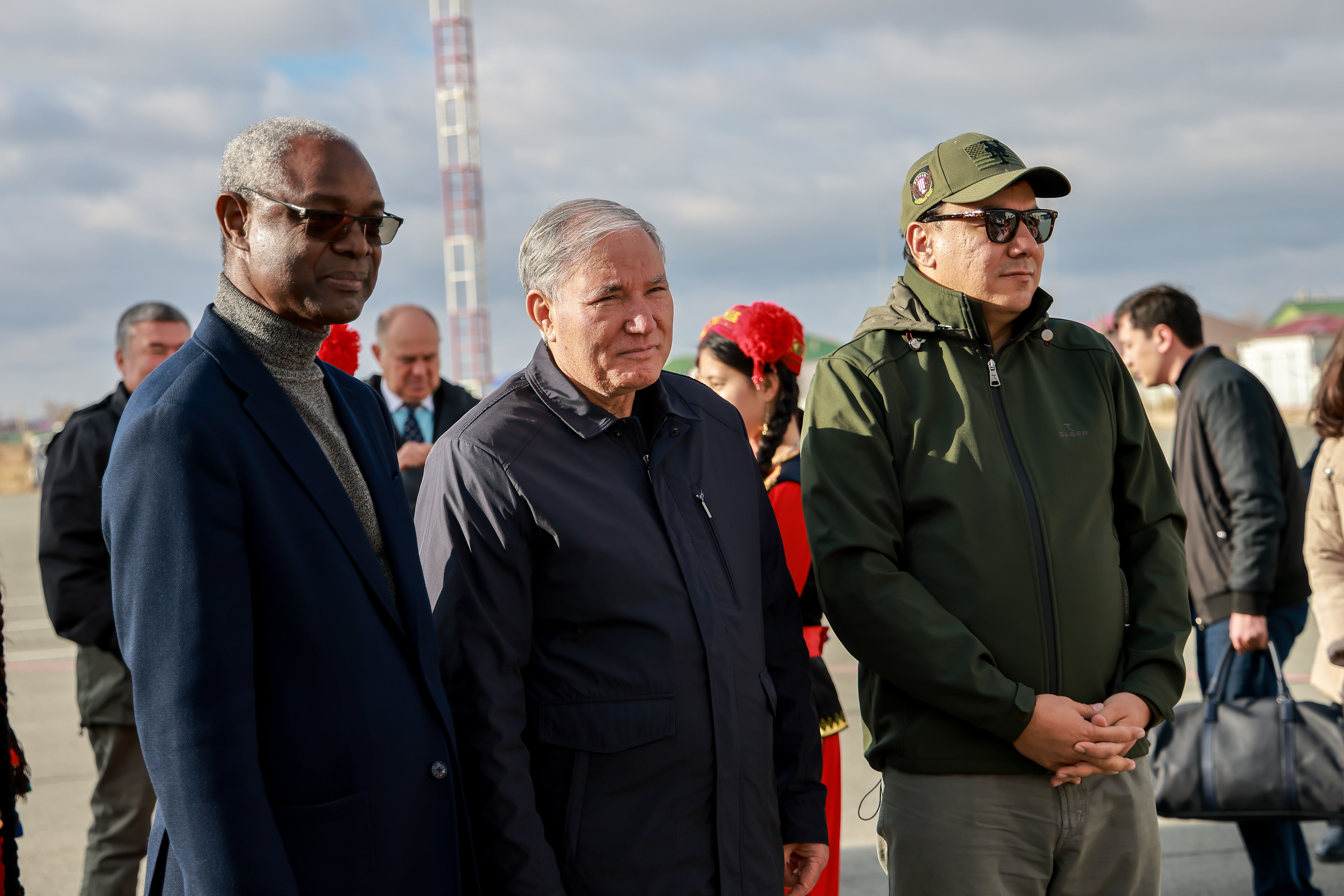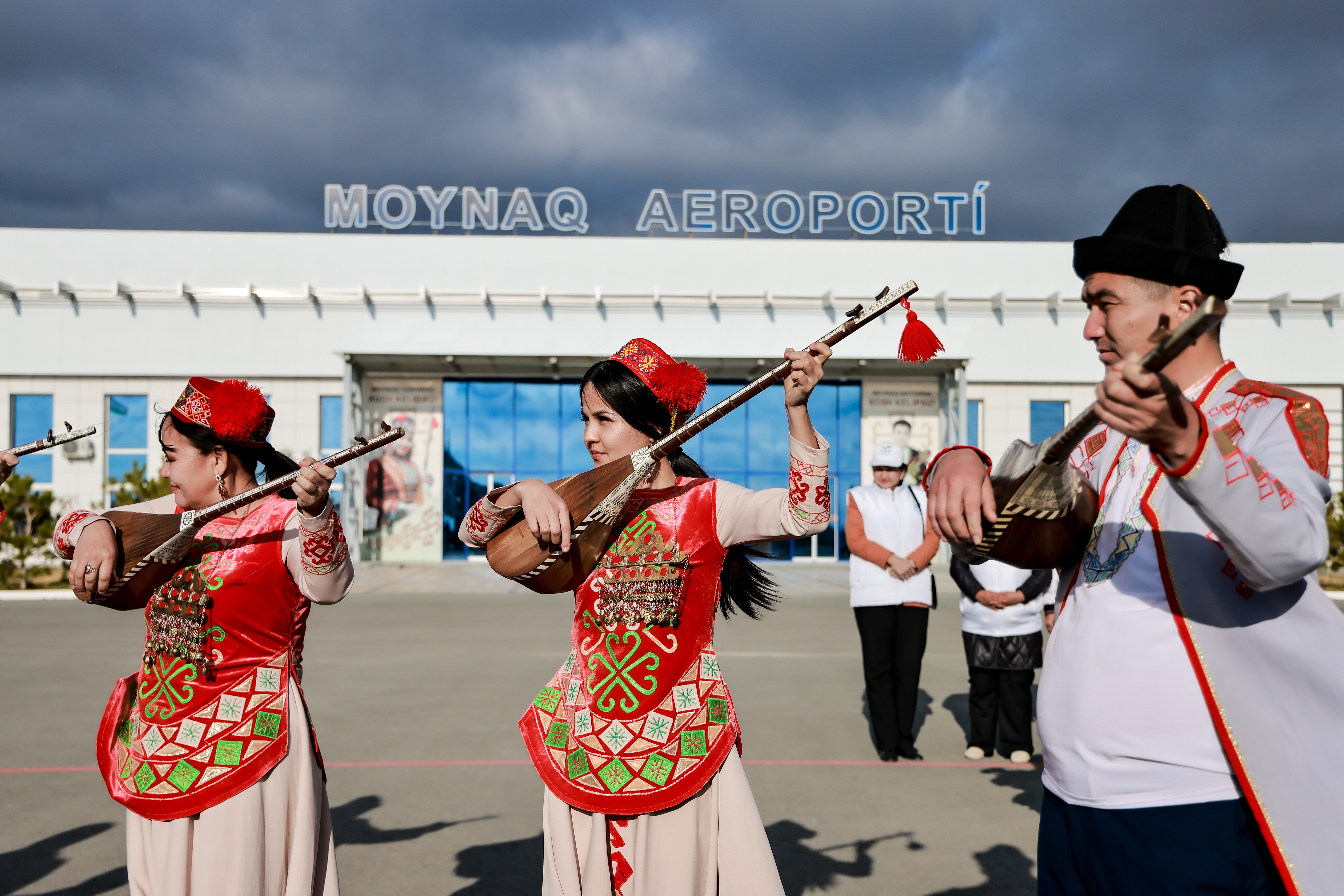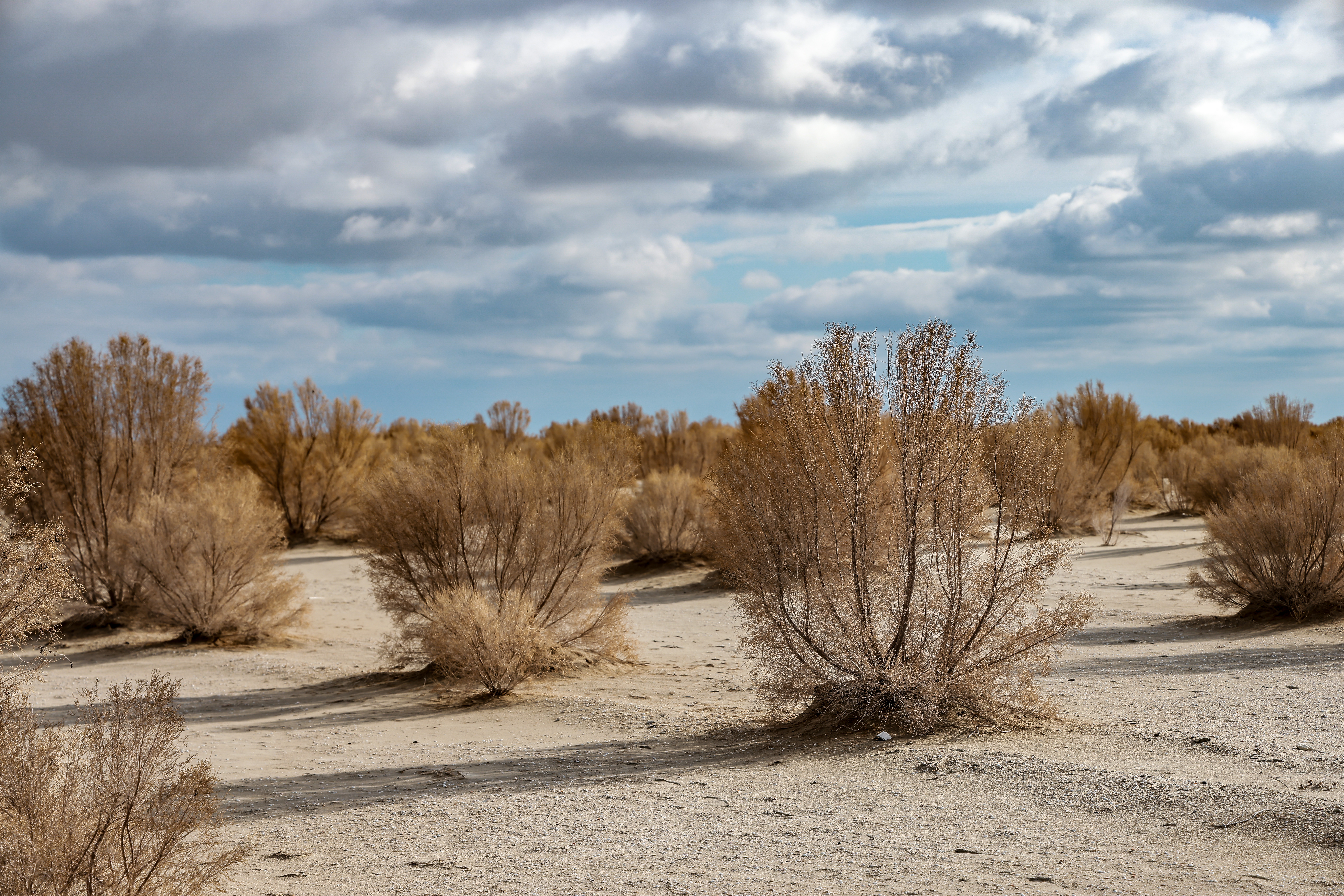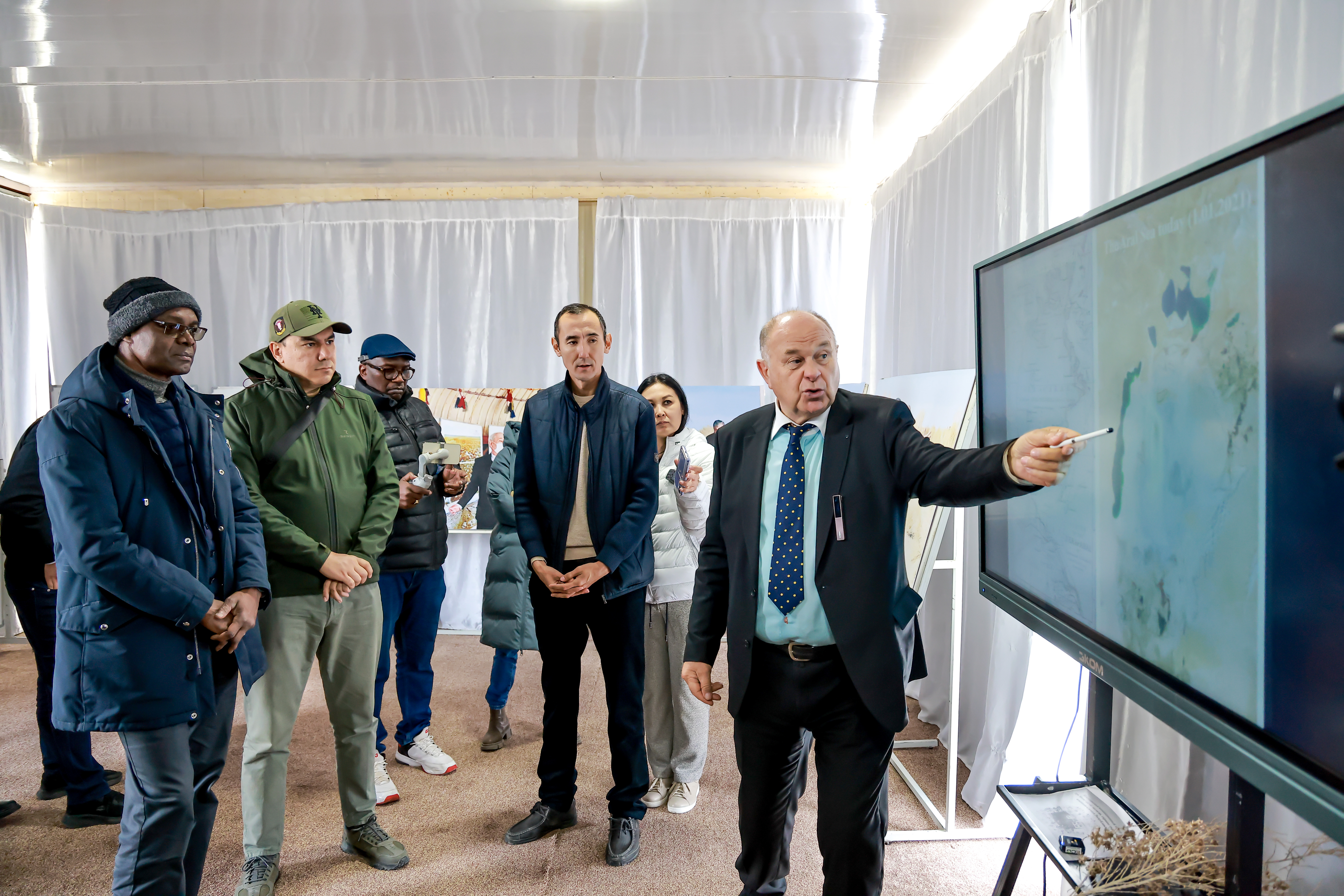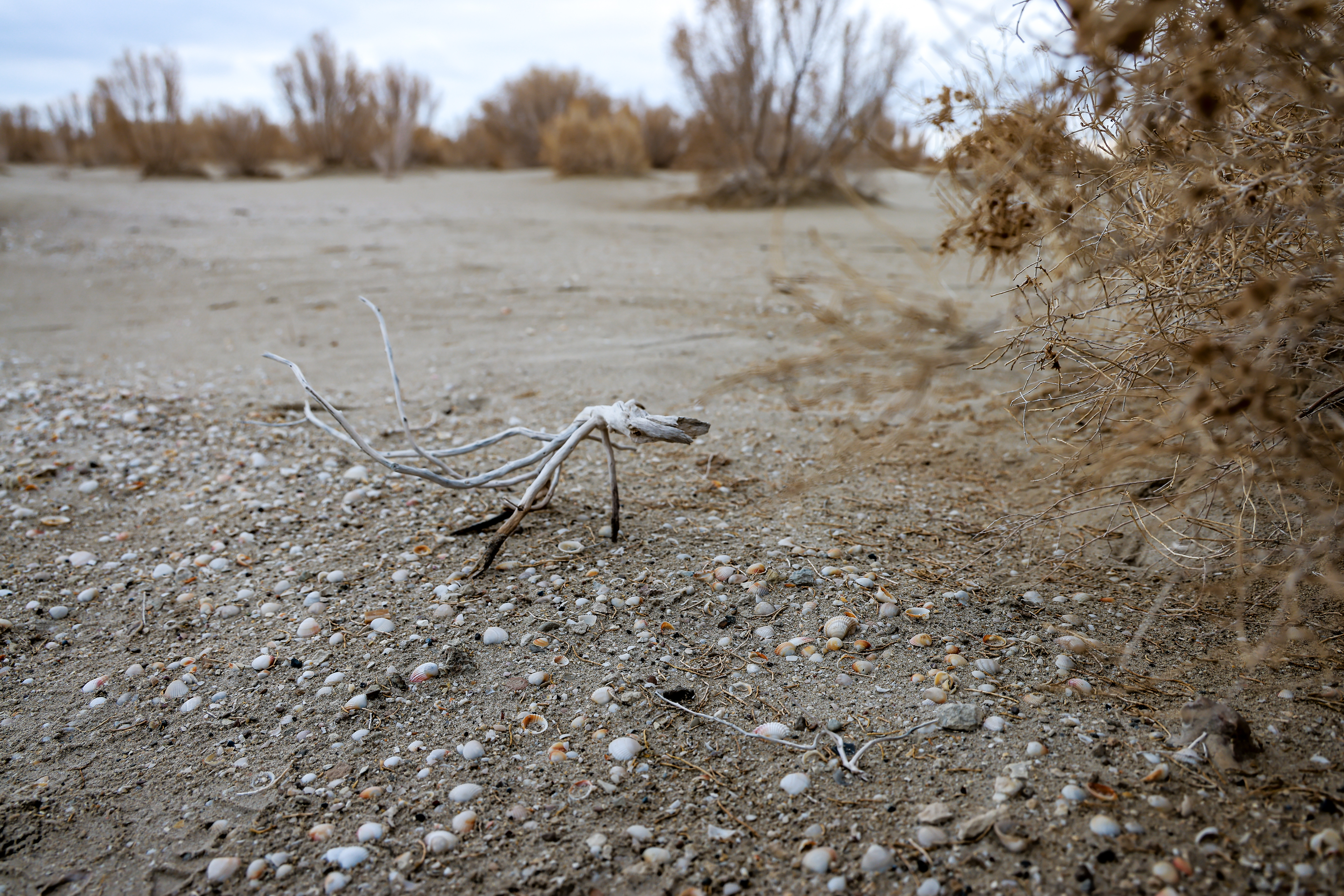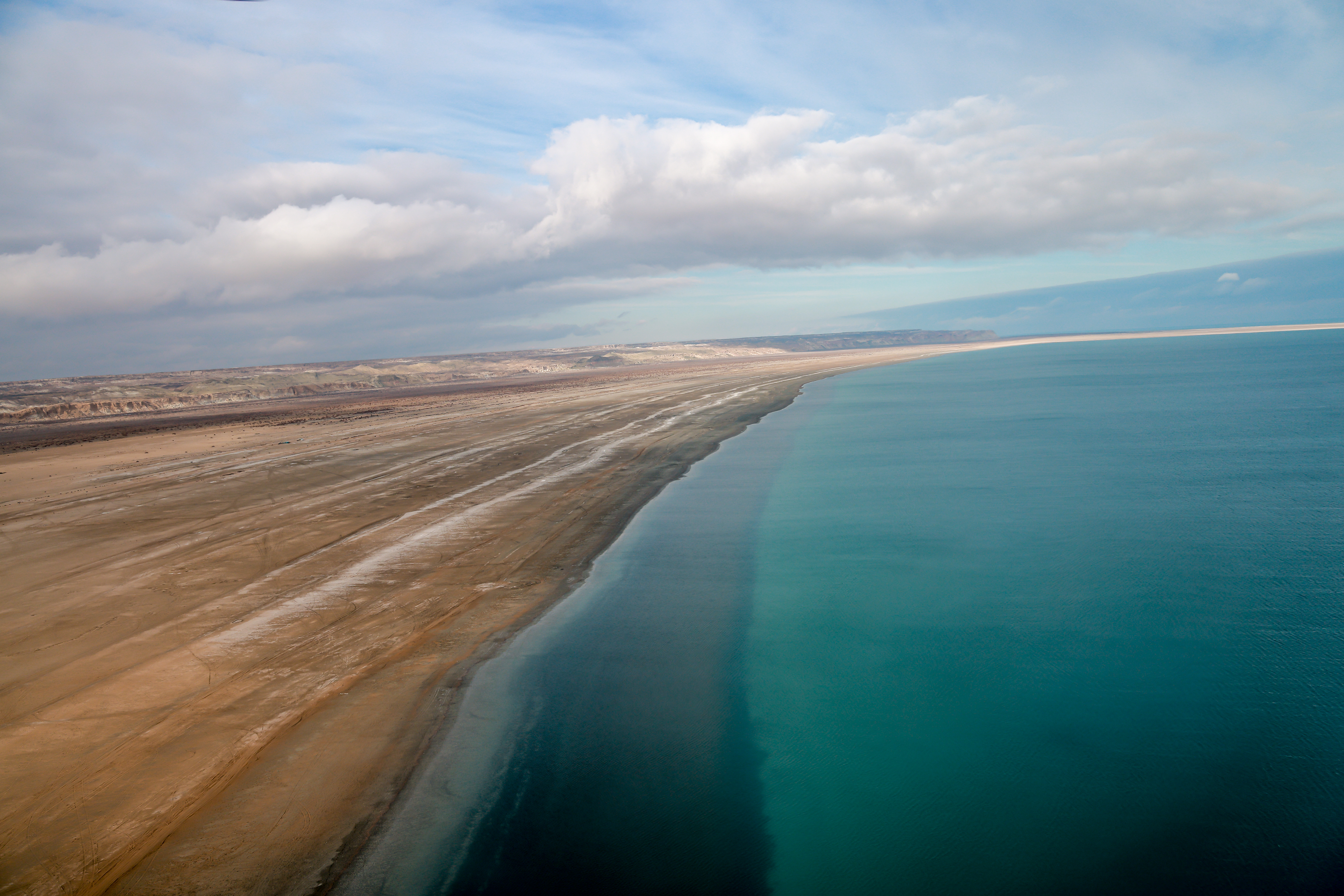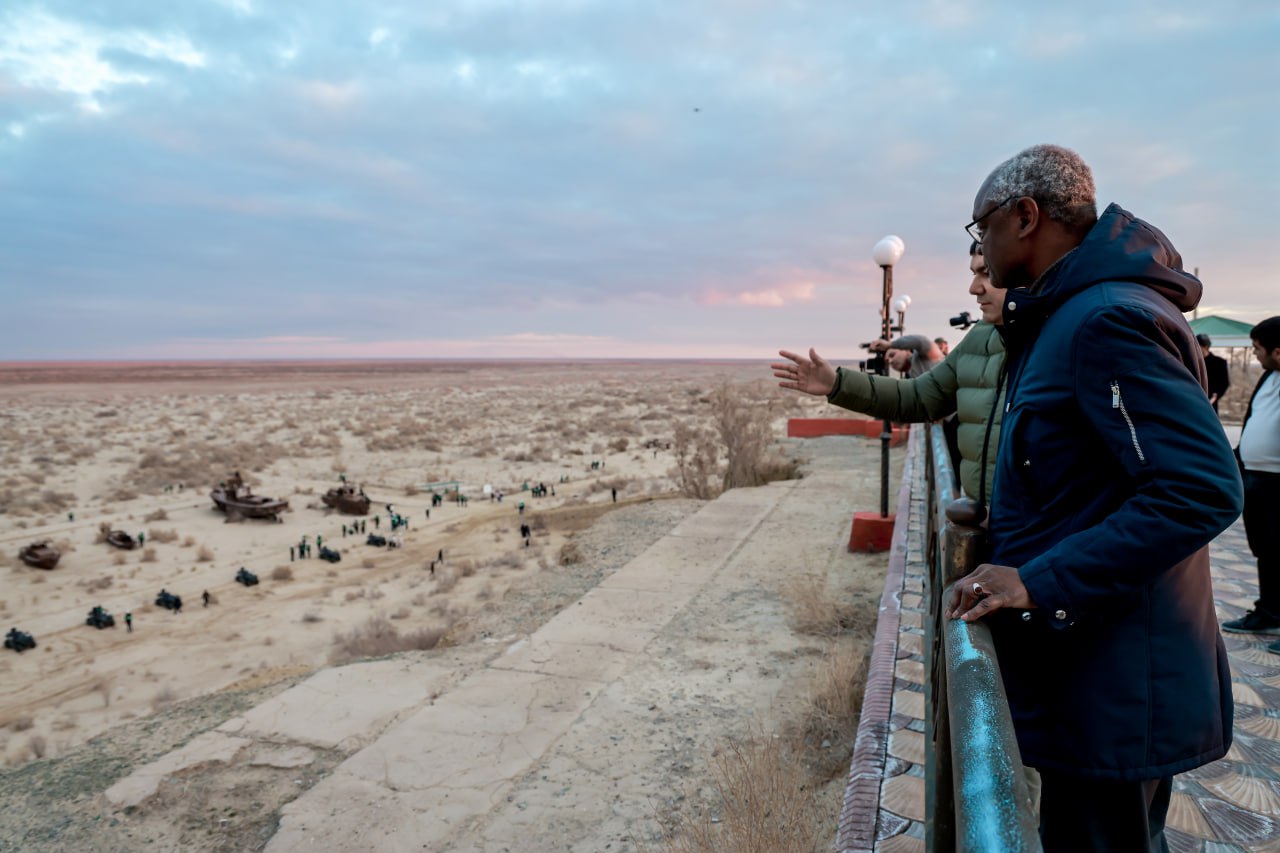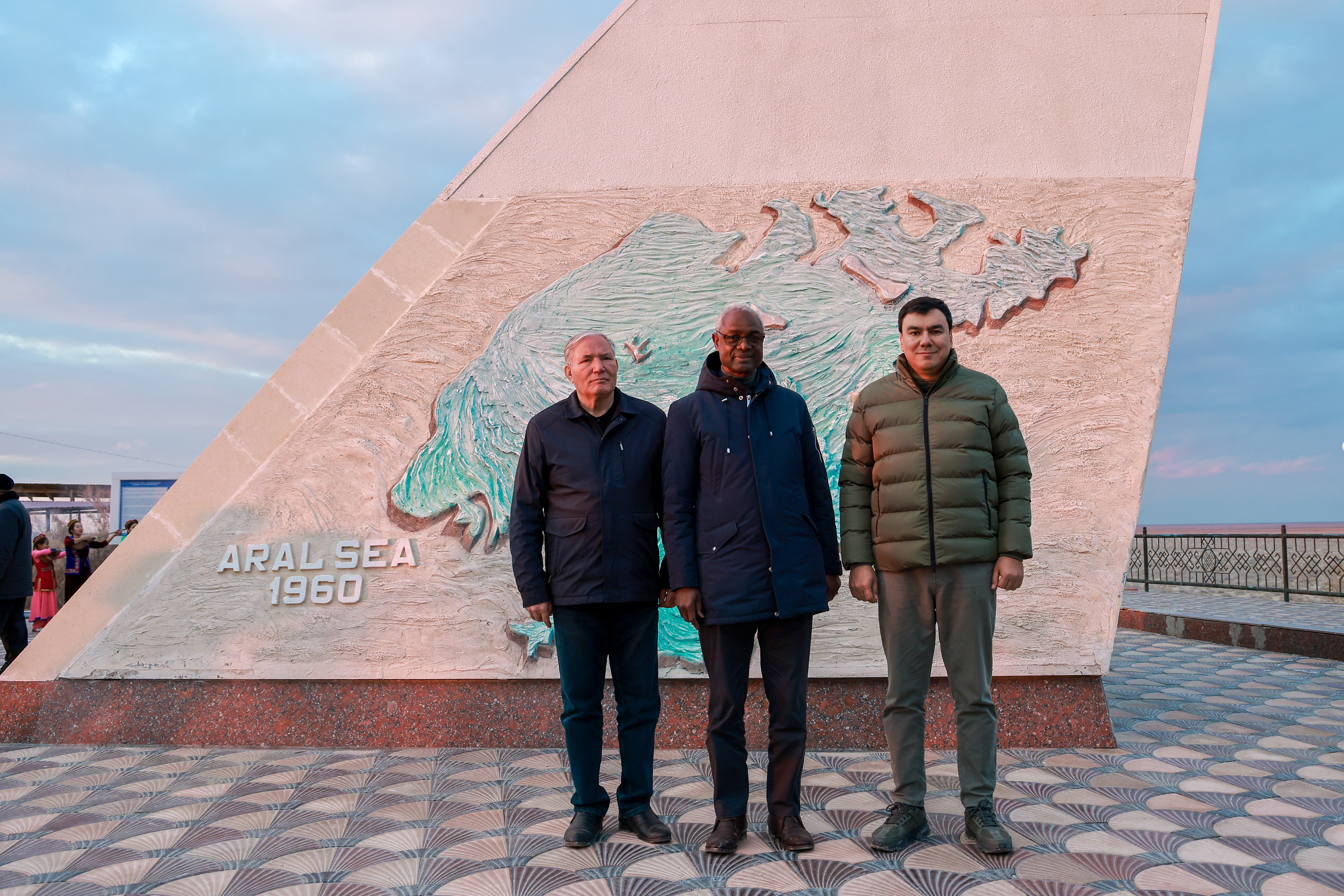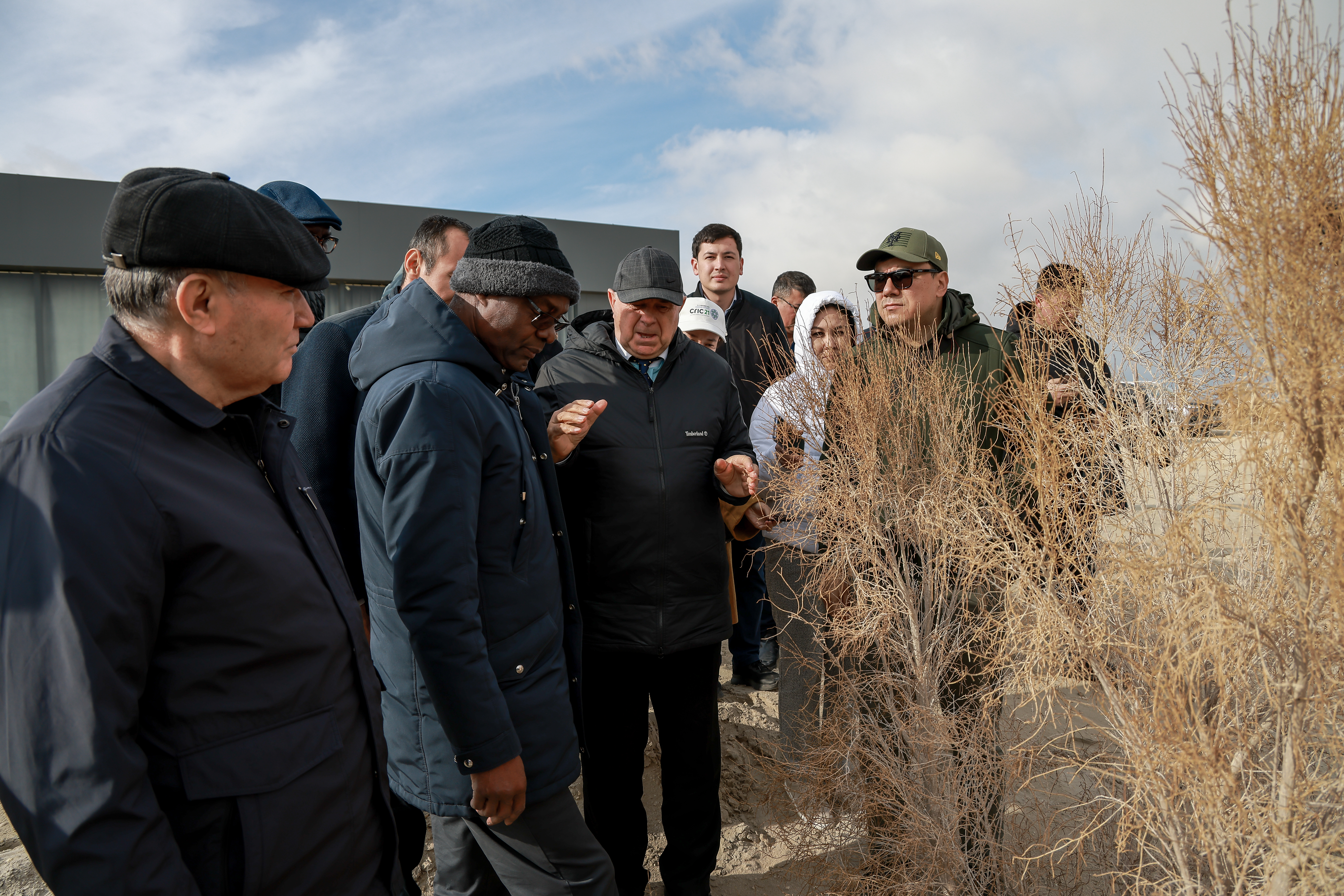
During the 21st session of the United Nations Convention to Combat Desertification (CRIC-21), the visit of the United Nations Secretary-General and the Executive Secretary of the United Nations Convention to Combat Desertification, Ibrahim Thiaw, accompanied by the Minister of Ecology, Environmental Protection, and Climate Change, Aziz Abdukhakimov, took place in the Republic of Karakalpakstan.
Representatives of the United Nations Convention to Combat Desertification, the Ministry of Ecology, the Forestry Agency, the Department of Ecotourism and Hunting Development, the International Innovation Center of the Aral Sea Region, as well as foreign media outlets, including Deutsche Welle (Germany), TenGerTV (Mongolia), The Astana Times (Kazakhstan), MIR TV (Kazakhstan), BBC Uzbekistan, and others, also participated in the event.
On the first day of the visit, in the Muynak district of the Republic of Karakalpakstan, the delegation familiarized themselves with the afforestation and greening works on the dried-up bed of the Aral Sea. They also visited the tree planting site (67th kilometer) in the dried-up part of the Aral Sea, the shore of the Aral Sea (Aktumsyk), the Open-Air Museum, and the Ship cemetery.
Aziz Abdukhakimov informed Ibrahim Thiaw that our country is implementing a number of reforms to green the Aral Sea region and combat desertification.
"In the following years, extensive measures aimed at improving the socio-economic livelihood of the local population living on the dried-up bed of the Aral Sea will be carried out under the guidance of President of Uzbekistan Shavkat Mirziyoyev to prevent the global environmental problem. The government of the country has adopted a number of special resolutions and programs in this direction, and practical measures are being taken to improve the environmental situation in the region," said Minister of Ecology Aziz Abdukhakimov. "The main problem is the frequent sand and dust storms from the open spaces of the dried-up bed of the Aral Sea," added the minister.
During the visit to the Muynak district, tree seedlings were planted. The director of the International Innovation Center "Aral Bay" under the President of the Republic of Uzbekistan, Bahitjon Khabibullaev, also presented information about the center's work on greening the dried-up bed of the Aral Sea. It was noted that cooperation with a number of international organizations has been established, environmentally friendly plants are being created, and other initiatives are being implemented.
In addition, the director spoke about a number of promising projects. In particular, within the project "Creating a Demonstration Site of Plants Resistant to Desert, Saline, and Arid Conditions and Establishing a Nursery" on an area of 100 hectares, a demonstration site of plants resistant to desert, saline, and arid conditions of the region has been created, and nurseries with such plants as cherkess and sugar cane are being established on an area of 10 hectares of the dried-up bed of the Aral Sea.
Bahitjаn Khabibullaev also announced that in 2023, the ImkonLab (UPSHIFT-2023) program has been launched in three regions of the Republic of Karakalpakstan with the aim of developing social innovation skills and social entrepreneurship. Grants totaling $20,000 have been awarded in collaboration with UNICEF in Uzbekistan. It was also noted that practical assistance has been provided to over 100 entrepreneurial young people in acquiring new professional skills and qualifications.
For information, cooperation has been established with international organizations such as the German Society for International Cooperation (GIZ), the International Innovation Center of the Aral Sea Region, the International Center for Biosaline Agriculture (ICBA), the Xinjiang Institute of Ecology and Geography (XIEG), the Japan International Cooperation Agency (JICA), the United Nations Development Programme (UNDP), the Global Green Growth Institute (GGGI), company of German International, and others.
Furthermore, the chief curator of the state program for the restoration of the ecosystem of the dried-up Aral Sea, academician Zinoviy Novitskiy, provided information about the project's goals and ongoing work. In particular, the academician noted that on an area of approximately 2 million hectares of the dried-up Aral Sea bed, salt-tolerant and drought-resistant saxaul trees and other crops have already been planted with the aim of improving the local ecology.
"Plants eliminate salts from the soil through their roots. Saxaul trees prevent the spread of soil and sand particles, making the air cleaner. These plants release oxygen and absorb carbon dioxide, which has a positive impact on the environment. Saxaul serves as a mechanical barrier. One saxaul bush can retain up to one ton of toxic sand and salt. Without it, all of this would be lifted into the air and carried over long distances," explained Novitskiy.
It is worth noting that during the period from 2018 to 2022, on the dried-up bed of the Aral Sea in the Muynak district, a "green cover" (protective forest plantations) was created on an area of 1.6 million hectares through seed sowing and planting of seedlings of desert plants. Forest enterprises and local residents collected 6.4 thousand tons of saxaul seeds and seeds of other desert plants. Sand-catching furrows were created on an area of 1.3 million hectares to facilitate forest creation. Additionally, to ensure high-quality planting materials for afforestation, saxaul nurseries are established annually on an area of 100 hectares by the forestry authorities.
